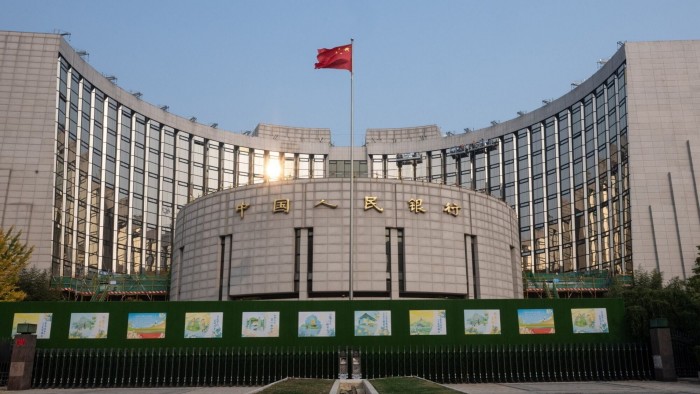Stay informed with free updates
Simply sign up to the Chinese business & finance myFT Digest — delivered directly to your inbox.
Foreign investors have dumped Chinese government bonds over the past two months, unwinding a popular and lucrative trade that had been enabled by Beijing’s efforts to support its currency.
Investors had poured more than $130bn between November last year and August into a trading strategy that involves lending dollars to Chinese institutions and then using the renminbi proceeds to buy Chinese bonds. The return from loaning dollars and investing in bonds could be up to 6 per cent, well above the yield on a US Treasury bond.
But the announcement of a bumper stimulus package by Beijing in September sparked a sell-off in Chinese government bonds and a rebound in the renminbi, inflicting losses on investors who had piled into the trade.
In response, foreign investors sold a net Rmb275.8bn ($38bn) of Chinese debt in September and October, the majority of which were government bonds, according to data from China Central Depository & Clearing and the Shanghai Clearing House.
That total includes the reduction of Rmb62.8bn in holdings of so-called interbank negotiable certificates of deposit (NCDs) — a type of short-dated government note that many investors employing this strategy tend to buy. Those sales marked the largest monthly outflows of NCDs on record, according to Nomura.
Market moves mean that “the cross-currency swap rates are no longer attractive enough for foreign investors to buy NCDs”, said Gary Ng, a senior economist at Natixis.
The yield from this trade “has shrunk in recent months”, said Ju Wang, head of greater China foreign exchange and rates strategy at BNP Paribas.
Chinese state banks had benefited from the trade as the currency swaps allowed them to stabilise the renminbi’s exchange rate.
But Beijing’s raft of stimulus measures in September, including monetary support for stock markets and debt swaps for heavily indebted local governments, drove a 0.17 per cent surge in 10-year Chinese government bond yields in just three days near the end of the month.
Greater volatility in bond prices, caused by central bank intervention since August and more issuance by the Ministry of Finance, has also made the bonds less attractive to foreign investors, said BNP’s Wang.
Meanwhile, US Treasury yields are higher due to a sell-off in recent months — as investors bet a Donald Trump victory in the US presidential election would make interest rate cuts less likely — potentially making them a relatively more attractive place for investors to park their cash.
Longer-term demand from foreign investors for Chinese government bonds “could remain relatively light” as a result of a weakening renminbi caused by a strong dollar and a potential increase in US tariffs, said Xiaojia Zhi, head of Asia research at Crédit Agricole.
Instead, foreign investors with risk appetite may enter Chinese equities, said Ng at Natixis.
Read the full article here




